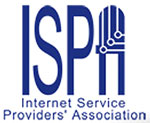Specifically, the legislature should retain the clauses that require marketers to get explicit 'opt-in' from consumers before sending them electronic marketing messages.
Laws, such as the Consumer Protection Act and the Electronic Communications and Transactions Act, in their earlier drafts, demanded that companies get permission from consumers before sending them marketing material using electronic channels such as email and SMS. However, the laws were finally passed with much weaker 'opt-out' provisions, following aggressive lobbying by the direct marketing industry. These softer clauses have not proven to be in the interest of consumers, said Ant Brooks, GM ISPA.
Consumers not consulted
The association notes the claim that a strict opt-in approach would result in a loss of jobs in the market sector. However, the automated nature of sending email and SMS spam means that this claim holds no water. The cost of delivering bulk unsolicited email messages is carried not by spammers, but by ISPs and the recipients of spam. Email spam raises the costs of Internet services to the consumer and affects the profitability of the ISP business.
Brooks noted that an opt-in approach to regulating marketing communications means that companies may only contact customers with whom they have an existing relationship, or who have given permission to be contacted.
Opt-out marketing means that companies may contact any consumers and makes consumers responsible for notifying companies that they do not wish to be contacted. Consumers must either opt-out with each company individually or sign up for a national 'do not contact' register. This is clearly a flawed approach.
ISPA is sympathetic to the need for companies to be able to market their goods and services to customers using electronic channels, but remains firm in its conviction that the cost and inconvenience of unwanted commercial messages outweighs its benefit, said Brooks.
He added that the most important voice in the 'opt-in' versus 'opt-out' debate is one that is largely being ignored: that of the consumer. "ISPA believes that most consumers would prefer a strict 'opt-in' approach to automated marketing tools such as bulk email and SMS," he concluded.








































